We realized traditional polls focused on predicting which candidate would win, so we decided to go for more interesting questions. We asked Canadians about who they trust, who they see as the fittest to lead the country, the topics they cared about, and even about the sources of information they trust in the era of fake news, foreign influence, and deep fakes.
Curious about the results? You can read the full report and methodology here, but we’ve extracted 5 key findings for you. Read on! Or, if you want to dive deeper into some of our other public studies, we encourage you to read up on those as well!

To get this one out of the way, we asked Canadians who would they vote for should the election happen today, and the results are not surprising as they match most polls out there:
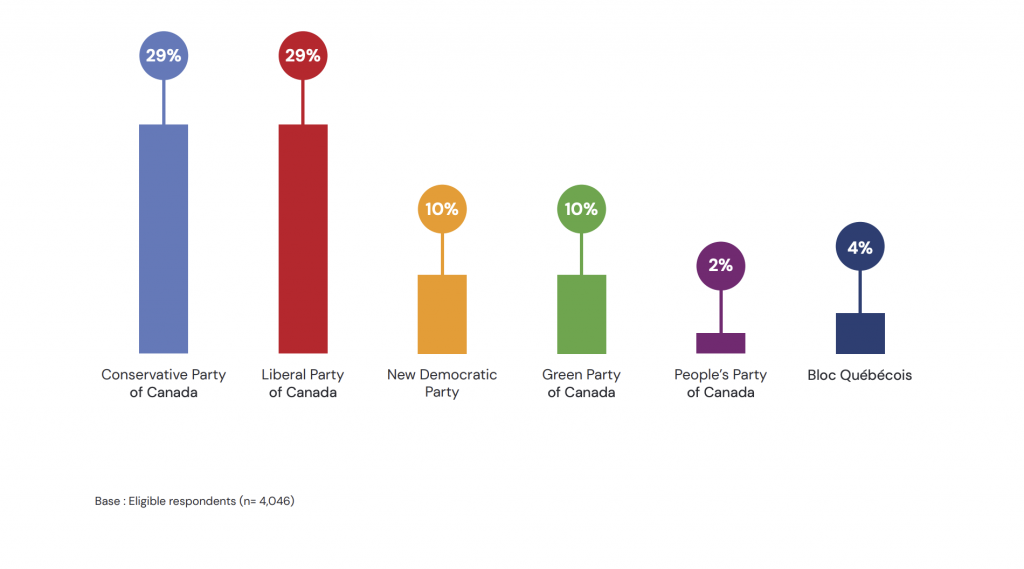
Now…on to the more interesting stuff:
1 in 6 Liberal and Conservative Voters are “soft supporters”
We wanted to measure how committed Canadians are to the political party they support today, so we asked them a series of questions to get their input:
- First, we asked them which political party was closest to their personal beliefs and values. This helped us determine party affiliation.
- Second, we asked them for what party they would vote for if Federal Elections were held today. That gave us a picture of their voting intentions.
- Lastly, we asked them to choose the party they would vote for should the Liberals and Conservatives be tied close to election day as many polls suggest. That gave us a good idea of who would stay loyal to their party affiliation and who would swing their vote.
The statistics explain how much of each party’s support is “soft”, and where their respective “soft supporters” would park their vote in the event they change their mind before election day. Our Head of Research for North America Marc Di Gaspero puts is this way: We’ve found that each party has a base that is firmly committed, and a portion of their supporters who might still drift to other parties. For example, 5% of those polled are soft supporters of the Liberal Party. The same is true for the Conservatives.
So what does this mean? Both the Liberals and Conservatives are tied at 29% support according to our poll. But out of that 29%, 5% says they don’t identify with those parties but would still vote for them. We broke it down into what parties are they coming from: 5% of Canadians don’t identify with the Conservative party and would actually vote for the Conservatives. Here is the breakdown:
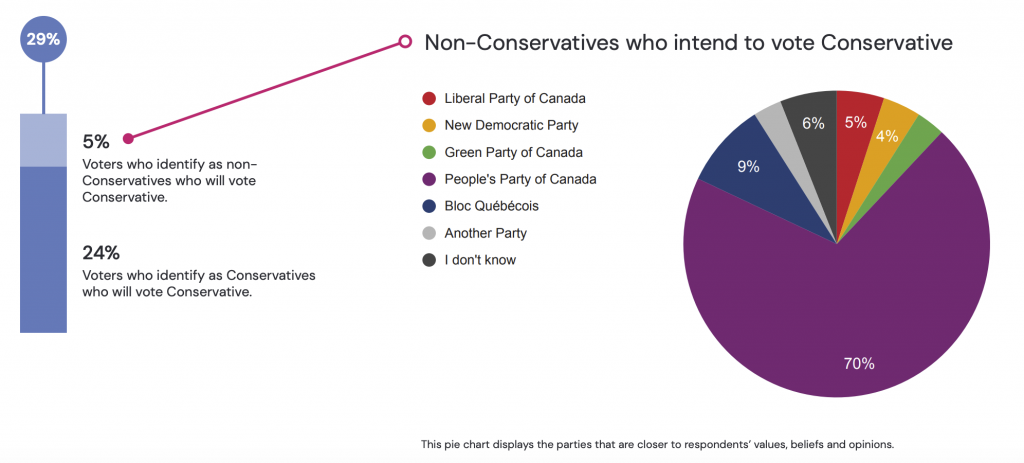
5% of Canadians don’t identify with the Liberal party and would actually vote for the Liberals. Here is the breakdown:
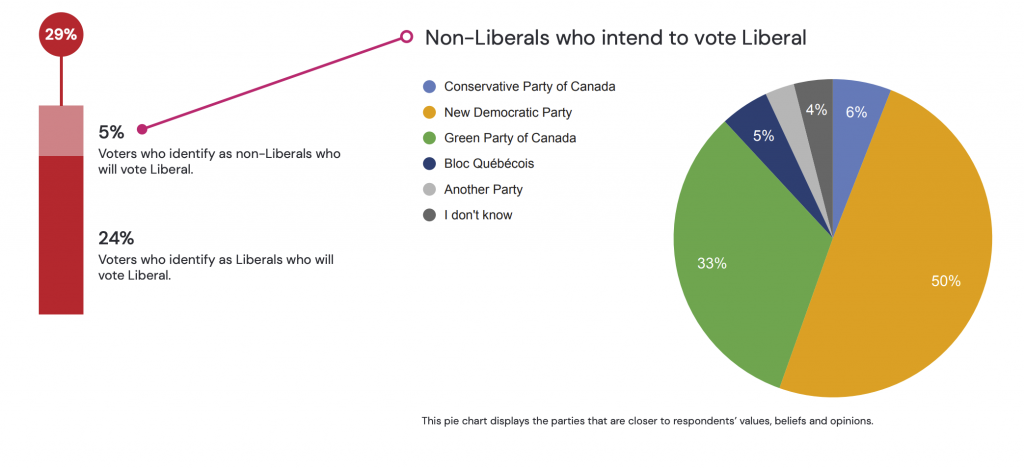
Of those who most identify with a party other than Liberal or Conservative, 16% said they would change their vote to Liberal, and 12% said they would change to Conservative if the polls remained deadlocked on election day.
Climate change, the economy, and healthcare are the topics Canadians care most about.
We also asked Canadians about the topics they would like political party leaders to talk about more between now and election day. We saw climate change leading, followed by the economy and healthcare.
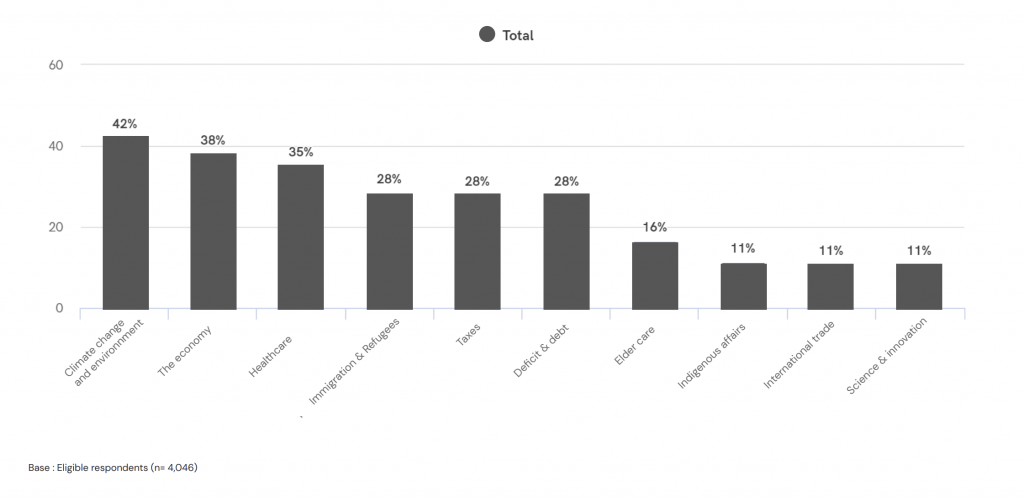
The leaders’ debate, online newspapers, and TV news are the sources of information Canadians trust the most when it comes to the Federal Election.
While these three sources of information are considered the most trustworthy, 13% of Canadians take to social networks to get their electoral news.
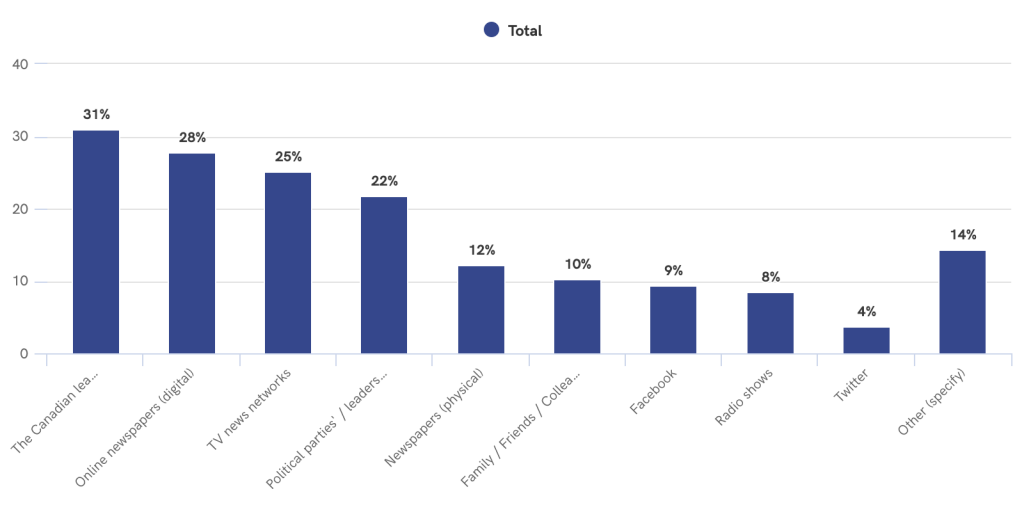
27% of Canadians believe they have been targeted by a foreign power or special interest group trying to sway their vote through social media, and 18% are unsure.
Voters from British Columbia, Alberta, and the Prairies rank higher in the perception that they have been targeted through social media, while Quebecquers seem more confident about the opposite.
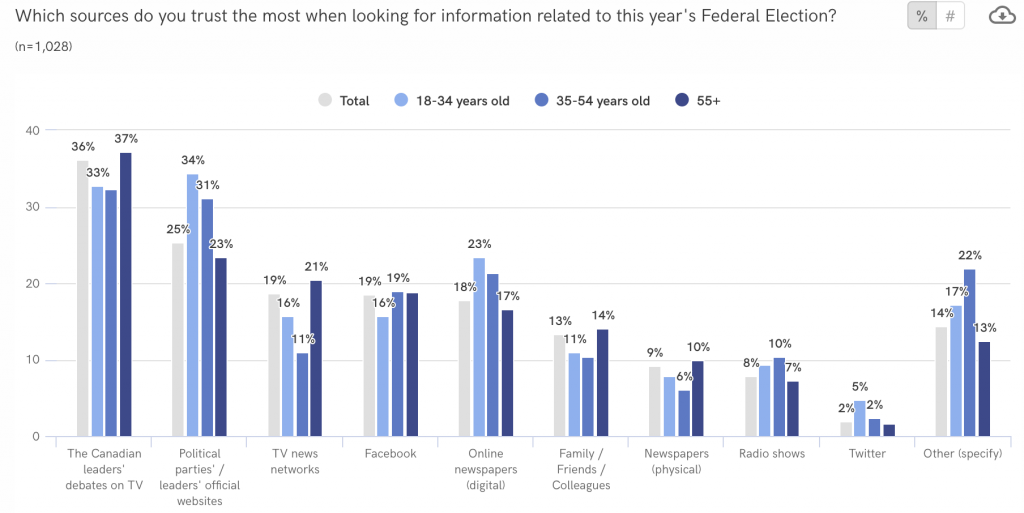
40% of Canadians think our role on the international stage should be to demonstrate leadership on climate change, while 31% believe Canada shouldn’t play any role and focus on internal issues.
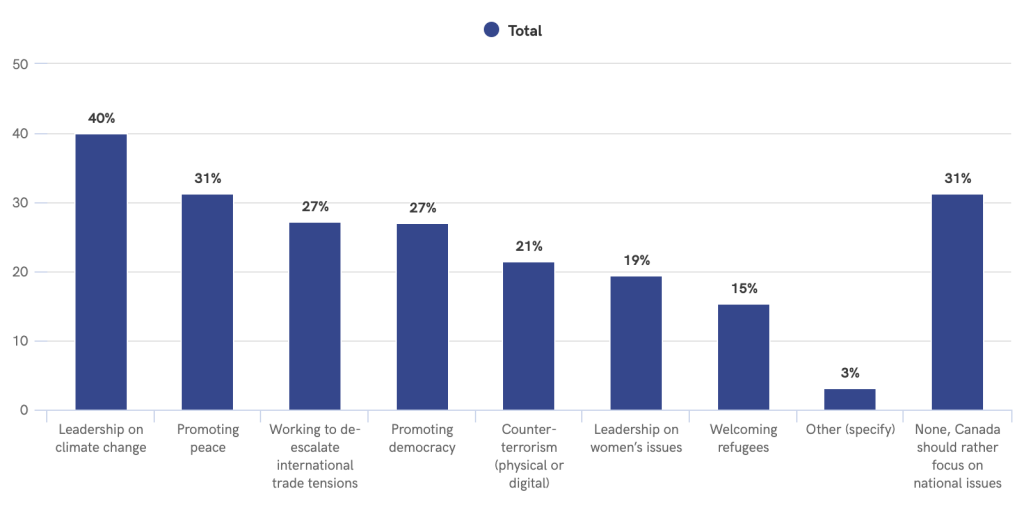
Curious to see all the breakdowns? Read the full report and methodology here. Otherwise, book a call with one of our experts to tap into your target market and empower your business with the kind of insights laid out above.
